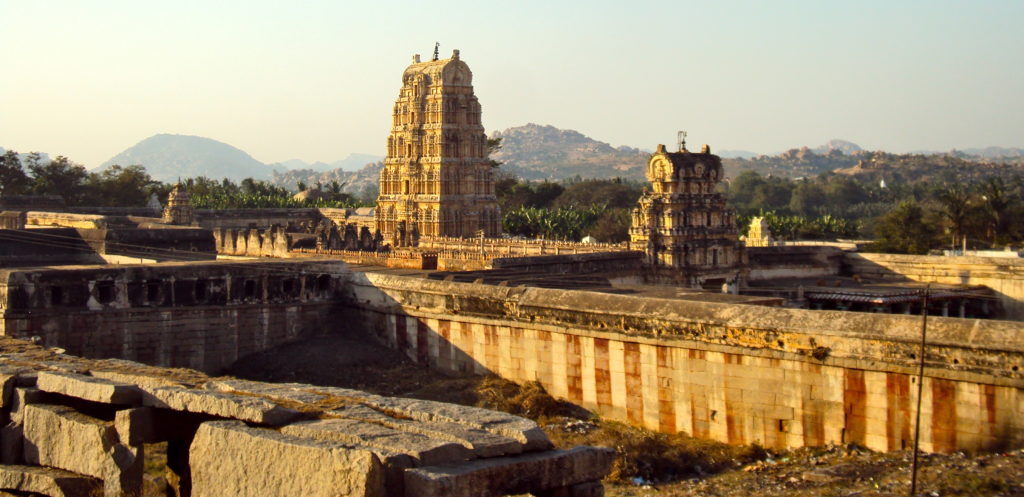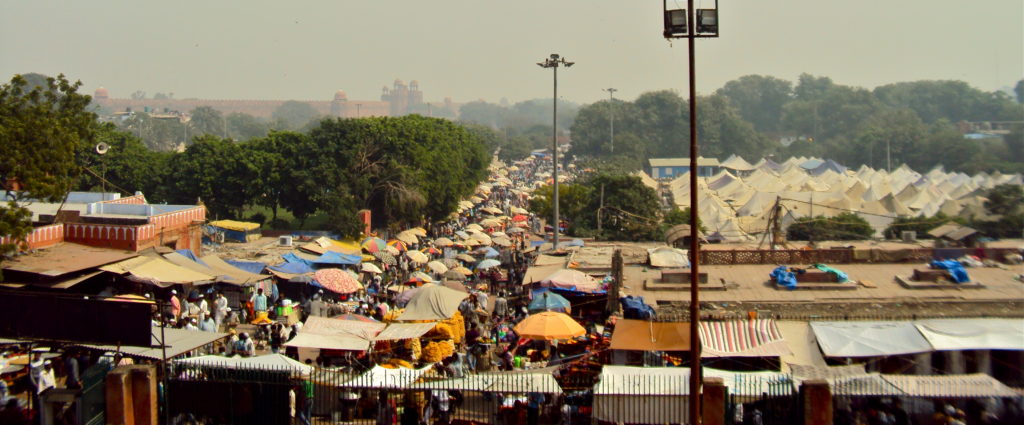Delhi in a Day (2011) and the search for the ‘real’ India
Vijayanagar was once a great city, but today, the small town of Hampi supports the area’s continued habitation, and streams of tourists, visiting its temples and dilapidated buildings, maintain its heritage as a place of commerce. A few years ago, I joined this stream, as my friend and I bussed there from Hyderabad, our home at the time. While we mostly filled our days with scooter rides through the region’s boulder-bordered rice fields, we accented them with meals and cups of chai in the local hostel cafes. It was during one such repast, as we spoke with another guest about our work and lives in the city, that our follow conversationalist indicated that Hyderabad, like the other cities of India, would not be on her travel list, as she was only interested in seeing the ‘real’ India.
Unfortunately, it seems fairly common that as buildings rise, appreciation for the cultural authenticity of their residents falls. In addition to being false and deeply offensive to city-dwellers, such perspectives are often historically myopic. The Indian subcontinent, for example, has been both urban and real since the days of Harappa (present-day Pakistan) around 3000BC – they had underground sewage systems! Even Hampi, a small rural town today, sits on the history of Vijayanagar, once among the largest cities in the world.

Photo: While slightly decayed, the buildings of Vijayanagar are still incredibly impressive
While Edward Said’s 1978 classic, Orientalism, provides plenty of theoretical fodder for conversations on culture and identity, and especially on how they are envisioned from an outside world, I’m particularly interested in how these themes are explored in film. It was for this reason that I was a pleased to watch Delhi in a Day, a 2011 film that tackles them with understated depth and charm.
From a plot perspective, Delhi in a Day (which can be found on Netflix) is fairly straightforward. Jaspar, an Englishman on his first visit to India, lands in Delhi for a short stay in the mansion home of his father’s Indian business partner, from where he plans to launch further travels. Shortly after arriving, his entire savings (which he brought in cash!) and had set aside for the trip, goes missing. In lieu of not finding them by the next morning, he returns to Britain.
While much of the movie focuses on its true protagonists, the household helpers who are falsely accused of stealing the money, Jaspar’s brief and misfortunate visit provides a useful lens through which to examine ironies inherent in the search for the ‘real’ India. Most directly, the theme is addressed in a conversation between Jaspar and Dhanbir, his host’s elderly father. With the house abuzz looking for his money, Jaspar expresses his dismay to Dhanbir that he imagined more from India than what he had seen. Specifically, he had wanted something more “spiritual, mystical, less worldly…something more authentic, more than this”. While Dhanbir explains that “there are many Indias and many different Indians”, Jaspar’s disappointment seems less than dissipated.

Photo: Delhi, a mix of past and present
But for me, it’s in the film’s subtleties that the irony, as well as the tragedy, of his search is best revealed, such as in the film’s concluding scene. With Jaspar leaving the mansion, Dhanbir gives him a parting gift, a book. Later, as the car pulls out, he looks over it. It’s a coffee table type, with large and colorful pictures of women in Sarees, the Taj Mahal, and other standard postcard fare.
He looks over pictures of the ‘real’ India that he’d imagined, holding a book gifted by a man who tried, but failed, to broaden it. At the same time, he ironically leaves behind real people and real India, in all its urban and rural, spiritual and secular, rich and poor diversity.
Out of all the Indias, he had set his eyes on only one. And in so doing, he missed the slices of India, as real as any others, that could be found in the household helpers and mansion owners he wished to circumvent to get there.
